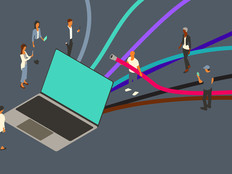How to Raise Money for Equipment Purchases and Other Upgrades
When a business is searching for ways to raise money to finance technology or other upgrades, the options vary considerably based on the type of financing and the amount of capital required. Standard bank loans are one option, but many small-business owners struggle to qualify for such loans on their own, unless they have substantial personal assets that they’re willing to put up as collateral. Another option is an equipment lease program that provides a more affordable way to finance discrete purchases.
The Small Business Administration offers a number of programs to help with financing. It’s National Small Business Week, so let’s review some of the better-known financing options aimed at small businesses.
SBA Express Working Capital Loan Is Aimed at Small Businesses
In 2014, the SBA introduced the Small Loan Advantage loan program, often referred to as the SBA Express loan. With this government-backed loan, a business can receive up to $350,000 of working capital until it generates positive cash flow. To qualify, business owners must have good personal credit and some liquid assets.
Qualifications vary depending on how much the business owner wants to borrow. Lenders typically require them to provide personal collateral — such as the business owner’s home, for example — for any amount borrowed above $150,000. A small-business owner who can provide that kind of collateral should nonetheless carefully consider the personal risk involved.
The interest rate for this loan is calculated by adding a 2.75 percent risk premium to the prime rate (as published in The Wall Street Journal), which is currently 5.5 percent. The repayment term is 10 years, and there is no prepayment penalty, so a business that can afford it can repay the loan faster to save interest expense.
To Raise More Than $350,000, Consider the SBA 7(a) Loan
The government’s popular SBA 7(a) loan program offers many benefits to finance a small business’s needs.
The business owner will have only one monthly debt payment amortized over the longest repayment term available, with no significant prepayment penalty. The use of funds is nearly unlimited to any legitimate business purpose, including the acquisition of new technology. The SBA 7(a) loan will finance as much as 80 percent of the total cost of whatever purchase or project the business is undertaking.
And because it is backed by the federal government, it offers the lowest interest rate available, currently 8.25 percent (in most cases), the same as the SBA Express loan. The Express and the 7(a) loans are compatible programs that can combined.
To qualify, the borrower must demonstrate industry experience, transferable management skills and/or related education. The collateral, required up to the loan amount, includes all business assets and typically residential or investment real estate. Good personal credit is required. As with a home mortgage, any equity provided by the business owner cannot be borrowed money.
How Equipment Leases Work for Small Businesses
Equipment leases are a common way for businesses to finance computer hardware and software, vehicles, security systems, signage and any other tangible item it uses.
Lease programs vary, of course, but businesses are usually required to pay a down payment, perhaps as much as 20 percent of the amount financed. Lease documentation fees may range from $95 to $495, with payment terms typically ranging from one to five years. All payments are tax deductible, so will lower a business’s taxable income and tax liability. The two main types of lease — capital and operating — offer different terms. Business owners are essentially renting equipment when they enter an operating lease, which is the far more common type. A capital lease is more like a loan; the owner is expected to retain the equipment at the end of the term and can often do so for a nominal fee.









